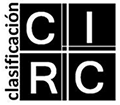La Música del Mariachi: Conservator of Mexican Culture and Heritage
DOI:
https://doi.org/10.18002/ehf.i45.7694Keywords:
Mariachi music; Mexican Heritage; decolonized music spaces; culture; identityAbstract
Mariachi music, its profound texts, rhythms, and mestizaje (racial mixture) preserve Mexican culture and heritage. Mariachi music is synonymous with Mexico. Both birthed through a violent beginning of forced assimilation and mestizaje, mariachi is one of the foremost symbols of Mexican national pride. Mariachi’s lyrics and distinctive rhythms, share and preserve a story of survival, cradle ancestral epistemologies, all that is Mexico, its Indigenous, Spanish, and African roots and history pre and post 1821. And just as in the study of any other music, language, or culture, it is consequential that precise, literal, translations (scores) of mariachi music, research, and other scholarly, cultivated resources are accessible to all Mexican descent people, especially Chicana/x/o students and those who teach them. Culturally relevant curriculum fosters identity and inclusivity and promotes academic success. However, as it pertains to music education, western European music history, theory, notation, and praxes dominate. With over 62 million Hispanics living in the United States, 62% of Mexican descent, it is dire to create decolonized music spaces that offer more than a single narrative. And within these spaces, it is crucial that quality resources are provided equitably. Because of its popularity and adoption as core curriculum in schools around the United States, amassing quality mariachi educational resources, musical scores and transcriptions, and other curricular materials is central to Mexican descent student success. In this article, I describe common mariachi song forms, their region of origin, meter, text structure and offer rhythmic analyses and examples for notating them.
Downloads
Métricas alternativas
References
Banks, Taunya Lovell. (2006): “Mestizaje and The Mexican Mestizo Self: No Hay Sangre Negra So There is No Blackness,” Southern California Interdisciplinary Law Journal, 15, 199-234.
Contreras, F. (2008, February 14). “Canciones de amor: Boleros for your lover” [https://www.npr.org/templates/story/story.php?storyId=19023782] (accessed in February 2, 2022).
Cruz, R. Y. (2017): “The Art of Mariachi: A Curriculum Guide,” Conocimientos Press; San Antonio, TX.
Díaz-Sánchez, M., & Hernández, A. (2013). “The Son Jarocho as Afro-Mexican Resistance Music,” The Journal of Pan African Studies, 6(1), 187–208.
Eberhart, George. (2021). “Ranchera. Encyclopedia of Music Genres” [https://www.georgemeberhart.substack.com/p/ranchera] (Accessed in July 2023).
Estrada-Barrera,E. (2000). “De Cocula Es El Mariachi, De Tecalitlan Los Sones,” Mexico: Estrada Editores.
Goer, Lydia (1998). “The Quest for Voice: On Music, Politics, and the Limits of Philosophy: the 1997 Emest Bloch Lectures,” University of California Press.
Gorlinski, G. (n.d.). “Musical structure. Encyclopedia Britannica”
[ https://www.britannica.com/art/African-music/Musical-structure] (Accessed February 2022).
Gurza, Agustine (2017). “Strachwitz Frontera Collection The Mexican Corrido: Ballads of Adverisity and Rebellion, Part 1: Defining the Genre” [https://frontera.library.ucla.edu/blog/2017/11/mexican-corrido-ballads-adversity-and-rebellion-part-1-defining-genre] (Accessed July 2023).
iHeart. (n.d.). “José Alfredo Jiménez” [https://www.iheart.com/artist/jose-alfredo-jimenez-129908/] (Accessed February 2022).
Levy, D., & Azcona, E. (2010). “Global Encounters Music of Mexico,” Carnegie Hall Coorporation.
Méx, R. E. (2019). “Polka norteña, UN Baile de Origen Europeo hecho mexicano: Espacio Méx. Espacio Méx | La revista que une a México y España.” [https://espaciomex.com/cultura/polka-nortena-un-baile-de-origen-europeo-hecho-mexicano/] (Accessed February 2022).
NAfME. (2018, October 23). “Improving music education for Hispanic students” [https://nafme.org/improving-music-education-hispanic-students-2016/] (Accessed February 2, 2022).
Romero, A. (2018). “Joropo, the National Song and Dance of Venezuela. World Music Central” [https://worldmusiccentral.org/2018/01/18/joropo/] (Accessed June 2023).
Serrano, C. “El Son De La Negra: An Analysis of Historical and Cultural Impacts of Mariachi.” WordPress.com. [from El Son De La Negra: An Analysis of Historical and Cultural Impacts of Mariachi | Claudia's Portfolio (wordpress.com)] (Accessed June 2023).
Downloads
Published
How to Cite
Issue
Section
License
Copyright (c) 2023 Rachel Yvonne Cruz

This work is licensed under a Creative Commons Attribution-NonCommercial-ShareAlike 4.0 International License.
Los autores o autoras que publican en esta revista están de acuerdo con los siguientes términos:
- Los autores o autoras conservan los derechos de autoría de su trabajo y ceden de forma no exclusiva los derechos de explotación (reproducción, distribución, comunicación pública, transformación) a la Universidad de León, por lo que pueden establecer, por separado, acuerdos adicionales para la distribución no exclusiva de la versión de la obra publicada en la revista (por ejemplo, alojarlo en un repositorio institucional o publicarlo en un libro), con un reconocimiento de su publicación inicial en esta revista.
- Este trabajo se encuentra bajo la Creative Commons Attribution-NonCommercial-ShareAlike 4.0 International License. Puede consultarse desde aquí la versión informativa y el texto legal de la licencia.
- Se permite y se anima a los autores y autoras a difundir electrónicamente las versiones pre-print (versión antes de ser evaluada) y/o post-print (versión evaluada y aceptada para su publicación) de sus obras antes de su publicación, ya que favorece su circulación y difusión más temprana y con ello un posible aumento en su citación y alcance entre la comunidad académica.











